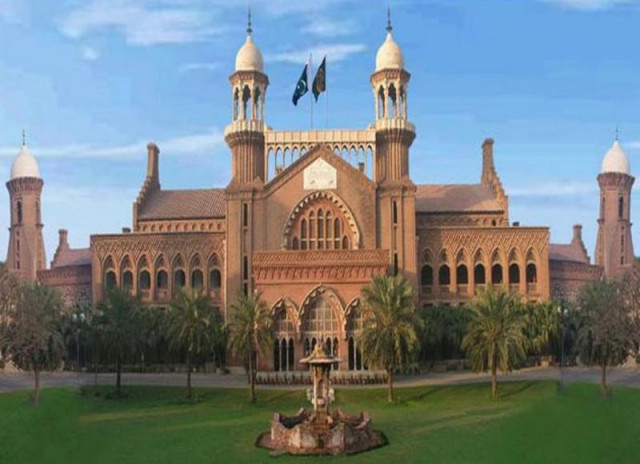Right to information: LHC told to disclose staff salaries on website
Information commission asks registrar to provide all information to complainant

PHOTO: FILE
The commission issued this directive on Tuesday to the LHC registrar to provide information about monthly salary and allowances of the chief justice to the complainant, Sarmad Ali.
The commission asked the registrar to provide this information to the citizen as soon as possible and not later than April 4, under intimation to the commission.
The commission told the registrar to take immediate steps to fulfill legal obligations as per sections 4, 7, 8 and 10 of the Punjab Information and Transparency Act, especially in terms of proactive disclosure of salaries, allowances and other perks and privileges of all the judges and staff on the website of the LHC and designation of its public information officers. There is no public information officer at the LHC that is necessary under the provisions of the information act.
The commission further required the LHC to establish an efficient mechanism to decide all pending or future information requests within the timeframe prescribed in section 10(7) of the act. The panel also directed its staff to send a copy of the order to the LHC chief justice for information.
The commission was headed by its chief information commissioner Mazhar Hussain Minhas and comprised information commissioners Ahmad Raza Tahir and Mukhtar Ahmad Ali. It is a unique order in its nature when a judicial forum has passed an order to its appellate authority.
In his application, Sarmad had submitted that he requested the LHC registrar to provide him information about the total monthly income of the LHC chief justice and what sort of allowances he was drawing.
In its order, the commission observed the LHC was a public body in terms of section 2(h)(iv) of the act and, therefore, it was required to take steps to implement various provisions of the Act regarding proactive disclosure, designation of PIOs, transfer of applications where required, and timely disposal of information requests in accordance with section 4, 7, 11 & 10 of the Act.
However, it appears that the LHC has not yet designated any officer as a PIO, despite the fact that section 7 requires that it should have been done within 60 days of the commencement of the Act, the commission said.
The commission observed the LHC was the highest court of the largest province of the country with the mandate to administer justice and hold all other institutions to account in terms of their compliance to laws enacted by the legislature. It is, therefore, extremely important that it sets the highest standards of compliance with the Act and transparency in its administration, which others follow and get inspiration from.
The commission also tried to justify its competency to issue directions to the LHC saying that the courts were subject to right to information laws in many countries around the world.
In India, courts have been responding to information requests and, in one instance, the Delhi High Court in its judgment of January 12, 2010 upheld an order of a single bench confirming order of the Central Information Commission of India, whereby disclosure of information regarding asset declarations of Supreme Court Judges had been directed.
Any inordinate delays or obstructions caused by the administration of the LHC are likely to be perceived as inconsistent with international best practice and harmful for the cause of transparency being pushed forward by the civil society through demands for robust implementation of right to information laws, the commission observed.
Published in The Express Tribune, March 22nd, 2017.



















COMMENTS
Comments are moderated and generally will be posted if they are on-topic and not abusive.
For more information, please see our Comments FAQ